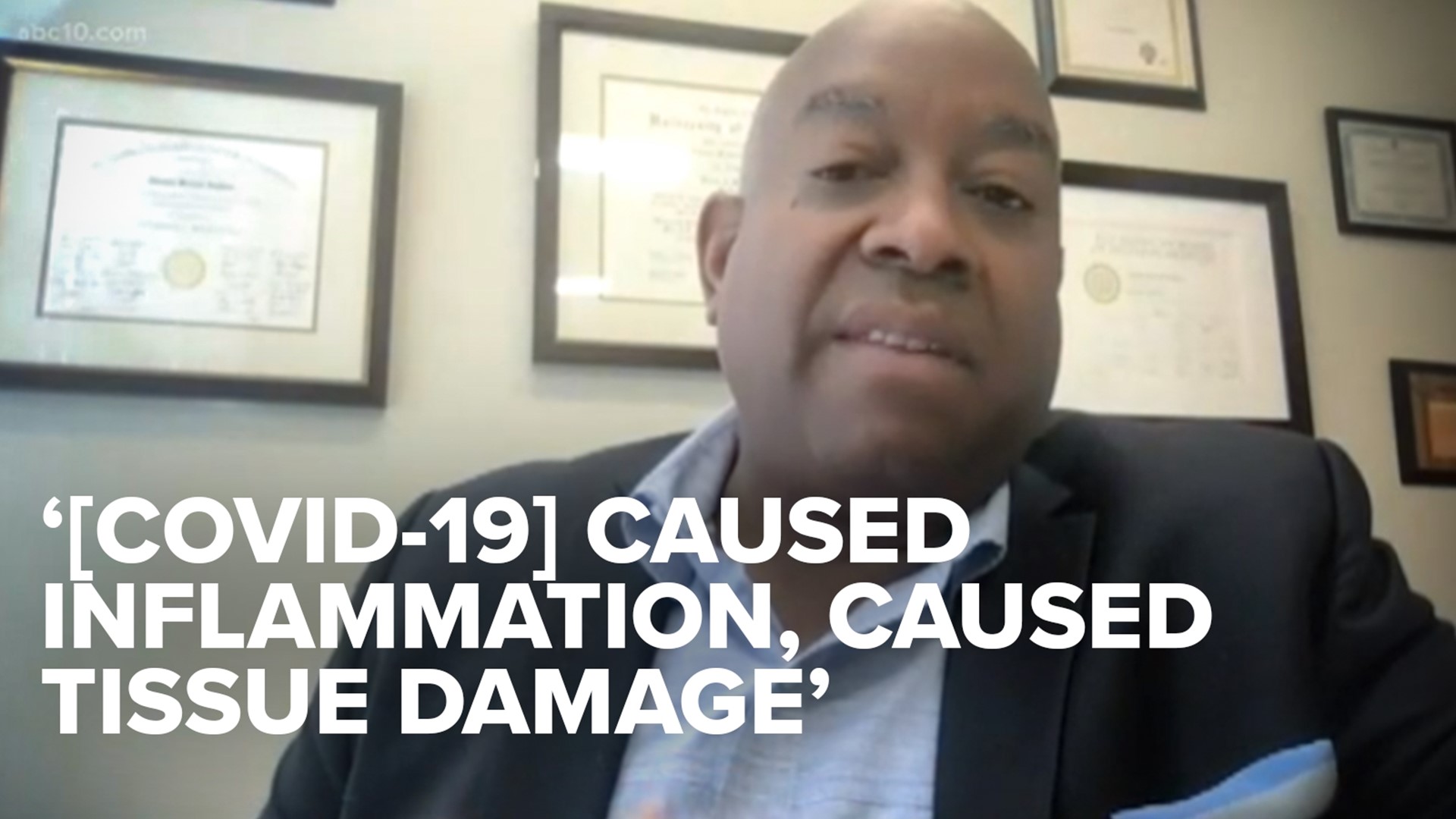SACRAMENTO, Calif. — Due to the omicron variant, the end of 2021 and start of 2022 saw a major spike in COVID-19 cases in California and across the country.
Many of those cases were mild, but there's a portion of the population who haven't gotten back to their old selves. There's a newer term with a familiar meaning going around and that's "Long Covid."
"Some people refer to it as long, long haulers, Long COVID. It has a variety of different names that really indicate a person who still has had some symptoms related to COVID. However they have come about it, a lot of physicians, we look at it as dividing it into certain categories," ABC10 Health Expert Dr. Tom Hopkins said.
Those three categories on Long COVID include:
- Patients who were in the ICU and are now on medication and dealing with the psychological impact of battling a major illness.
- Patients who suffered tissue damage due to COVID-19. For example, that could be in the lungs. Now that the majority of the illness have passed, they just can't seem to recover fully.
- Patients who had mild symptoms and are now dealing with inflammation. Dr. Hopkins said this is typically found in patients with underlying health issues like asthma and heart disease.
"The good news is that we haven't seen anything catastrophic where it's going to pose a significant risk of death or hospitalizations, or relapse of COVID," Hopkins said. "We do know that it has lingered, and it probably is lingered for the very reason that it caused inflammation, it caused tissue damage, or it impaired the function of something that the patient already has, and that it was trying to overcome."
If you're still dealing with a loss of taste and smell even though you tested negative, you might fall into that last category. Dr. Hopkins said if you're dealing with longer clinical symptoms, its important to reach out to your doctor. A physician can rule out any underlying conditions that could make your symptoms stick around.
"I said this time and time again that even during this pandemic, folks really need to still be concerned about the diseases that they have as opposed to just worry about COVID," Dr. Hopkins said. "So, it's important to just go see your doctor if you're really worried."
ABC10: Watch, Download, Read
Watch more from ABC10
California proposes to force some homeless people into treatment | Rynor Report



















